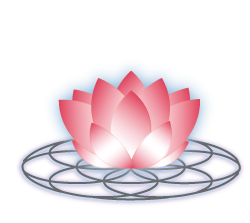With summer here, people are wanting to go out and explore. This desire is even stronger since we've been isolating, social distancing, and not leaving our houses. Going out and enjoying the national parks by hiking or camping is a great way to get fresh air and a change of scenery. However, with being outside, and tall grasses, comes the potential of getting tick and mosquito bites.
Ticks can transmit diseases like Lyme's disease, and Rocky Mountain Spotted Fever. These disease can literally change your life for the worse, and even if their rate isn't high, it's something shouldn’t risk getting. Lyme's Disease is incredibly complex, and we are still learning about it today. People who do have it are extremely passionate about educating other about it because of how dramatically their lives have changed. So the easiest way to prevent these diseases is to prevent them from biting you. This is were insect repellent and protective clothing becomes your friend.
In the event that you are bitten by a tick, you should extract all of it, including the head (this means nor twisting it off, because it might leave it's head in your skin). Do not irritate the tick by pouring alcohol, because you may cause it to vomit in you. There are tools you can get to help with this. After you remove it, you should keep it to be tested to make sure it isn't a carrier of Lyme's disease, Rocky Mountain Spotted Fever, etc.
I was researching different essential oils (EO) and their effectiveness against mosquitoes and ticks, so that you may be able to make your own. The problems arise because there isn't a lot of research on it, and of the research done, nothing is really definitive. One thing that is important to know if you decide to make your own is that the volatile oils are what makes it effective. So once the scent has evaporated, it is no longer effective. For most essential oils this is between 45 minutes - 2hrs. This means that you are going to have to reapply multiple times throughout the day.
Also, there are some oils that work well together and others that don't. This means they either boost each other's effectiveness, or the decrease the total effectiveness. So knowing which oils to mix together is also important. For example, there are articles that display that Mankua EO works well with oregano EO, while Manuka EO and clove bud EO don't work well together. You are able to combine these essential oils with 'fixer' to make them last longer. The one that pops up often in the studies is vanillin, which can be found in vanilla bean essential oil. It allows the effectiveness of other to last longer.
essential oils
Essential oils that have been shown to have insect repellent properties are the following (Asadollahi A, et al, 2019):
Oregano + Manuka essential oils - work together to repel mosquitoes. Clove bud oil works against these two oils, making their repellent action weaker (Muturi EJ, et al, 2017)
2-undecanone - from the leaves and stems of wild tomato plants. It is able to repel blacklegged and lone star ticks (Cisak E, et al, 2012)
Carrot Seed essential oil - against mosquitoes, and works well together with DEET
Carotol - displays a similar efficacy as DEET (Ali A, et al, 2018)
Lemongrass +cinnamon bark essential oil - repellent against cool weather mosquitoes (Peach DHA, et al, 2019)
Lavender essential oil - against mosquitoes (Bedini S, et al, 2018)
Chinese lovage essential oil - has been found to be comparable with DEET, with complete protection from 9.1-11.5 hrs (Sanghong R, et al, 2015)
Please keep in mind that these are not hard and fast rules about essential oils. There are a number of other essential oils that have studies on them, but it can be difficult researching them with contradictory studies. These are some of the ones that I was able to find, but there are more. There are studies that display mixing too many oils together decreased their effectiveness, so make your mixtures as simple as possible.
Last thing to note, is that the studies were done all over the world, and believe it or not, there are a number of different mosquito species, and not all of them are repelled with the same oils. For example, the mosquitoes in Thailand are resistant to DEET.
Essential oils can cause skin reactions depending on how sensitive you are, and it is suggested that you mix them (can mix them in grain alcohol, I’ve seen people recommend using witch hazel as well), and to do a test patch to make sure that you are not allergic to it.
~ Dr. Charmagne

